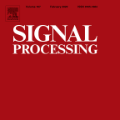We introduce VPNet, a novel model-driven neural network architecture based on variable projection (VP). Applying VP operators to neural networks results in learnable features, interpretable parameters, and compact network structures. This paper discusses the motivation and mathematical background of VPNet and presents experiments. The VPNet approach was evaluated in the context of signal processing, where we classified a synthetic dataset and real electrocardiogram (ECG) signals. Compared to fully connected and one-dimensional convolutional networks, VPNet offers fast learning ability and good accuracy at a low computational cost of both training and inference. Based on these advantages and the promising results obtained, we anticipate a profound impact on the broader field of signal processing, in particular on classification, regression and clustering problems.
翻译:我们引入了基于可变预测的新型模型驱动神经网络结构VPNet。将VP操作员应用到神经网络可以产生可学习的特点、可解释的参数和紧凑的网络结构。本文讨论了VPNet的动机和数学背景,并介绍了实验情况。在信号处理方面,对VPNet方法进行了评估,对合成数据集和实际心电图信号进行了分类。与完全连接的和一维的电动网络相比,VPNet提供了快速学习能力和良好准确性,以低计算成本进行培训和推断。基于这些优势和取得的有希望的结果,我们预计对信号处理的更广泛领域,特别是对分类、回归和组合问题产生深远影响。





